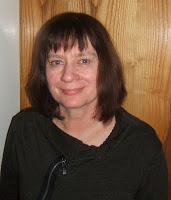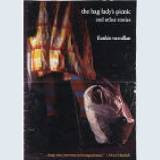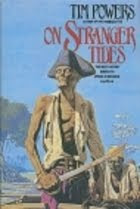
Frankie McMillan is an award winning short story writer and poet. She held the CNZ Todd Bursary in 2005 and this year was the winner of the New Zealand Poetry Society International Poetry Competition. She lives in Christchurch with her partner (in a 130 yr old house) in the inner city. She is a keen cyclist and lives within biking distance of family members and her workplaces: The Hagley Writers’ Institute and Christchurch Polytechnic.
Frankie, your first poetry collection, Dressing for the Cannibals, was launched on Thursday 20 August as part of the Christchurch Central Library’s 150th anniversary celebrations. How did the launch go?
It was great, thanks. A bit of chaos beforehand; the venue was changed an hour beforehand from the second floor of the library to the upper staffroom floor (where alcohol was allowed). Michael Harlow almost didn’t make it; he’d booked the wrong flight, and Robyn who was to speak on behalf of the library was too busy stuffing people into lifts, to be there for the speeches! About 50 -60 people were there, some fine speeches were made by David Gregory (Sudden Valley Press) and Michael Harlow. Live music was played, kids ran about, books were signed and the wine didn’t run out!
You’ve had poetry published extensively, and your poem “My Father’s Balance” won the NZ Poetry Society International Poetry Competition in 2009. But let’s suppose someone is coming to your work completely fresh. What would you like to tell that person about your poetry, and about Dressing for the Cannibals?
My poems are characterised by humour, accessibility, with an often faux naïf narrator who makes observations about how it is we are ‘so mysterious to ourselves and to the world.’ The poems are fictional but have an underlying emotional truth. They reflect my interests; theatre, folklore, memory, family and the peculiarities of being human.
Themes vary, from the nature of illusion – there’s some tricksy type poems about the world of magic shows and travelling circuses to power – who holds it on a world scale or in a family context. (The poems on cannibalism were prompted by a childhood horror of being eaten.) There are a number of prose poems in the collection, a form I find really exciting to work with.
I hope the reader always knows where they are in one of my poems, but not necessarily where they are going.
Are you a poet for whom the formal aspects of poetry are particularly important?
No, the formal aspects are secondary to what I see as the exploration of an idea. I attend to certain poetic elements and the overall structure but am led more by the process whereby words/thoughts are attracted to each other. (The premise that the first idea is often the best idea possibly reflects my training in improvisational theatre.)
 Dressing for the Cannibals has a very striking cover, and I see from Helen Lowe’s preview of the book on Beattie’s Book Blog that the cover painting is by your daughter, Rebecca Harris. Was this painted especially for your book, or was an existing work that just fitted perfectly with what you had in mind for the book?
Dressing for the Cannibals has a very striking cover, and I see from Helen Lowe’s preview of the book on Beattie’s Book Blog that the cover painting is by your daughter, Rebecca Harris. Was this painted especially for your book, or was an existing work that just fitted perfectly with what you had in mind for the book?
The painting, Night Visitor, was of an existing work (2006) which was part of a series exploring the early contact between Maori and Pakeha. There is a sense of mischief in Rebecca’s work which resonates with my writing and yes, it fitted perfectly with the book’s themes. (Rebecca is represented by Milford Galleries.)
I recently interviewed Joanna Preston, and elsewhere she has commented that Christchurch is the Motown of the New Zealand poetry scene. (I think she was talking about the level of activity and productivity rather than a penchant for perfect pop singles.) I know that you’re an active participant in Christchurch poetry events; do you agree with Joanna that Christchurch is a particularly happening place for poetry at the moment – and if so, why do you think this is?
When I came back to Christchurch eight years ago, I was amazed at how many poetry groups there were but even more surprised at how many poets belonged to more than one or two. Recently a few of us ex IIML graduates living in Christchurch (fiction and poetry) have expressed an interest in getting together so possibly yet another group will form! Why do writers, poets, in particular, have a hunger for belonging to groups, I don’t know. I do know the poetry group (of which Joanna is a member) has been enormously helpful to me but possibly so too would a fiction group of which there seems relatively few in Christchurch.
I have noticed previously that poets seem to be more likely to get together, and work together, than fiction writers. Why do you think this is?
I suppose the obvious answer is that poetry, being a small form, lends itself well to discussion – there are usually no more than thirty lines to consider, unlike a 3,000 word short story or much longer novel. In a two hour meeting up to eight people can receive feedback on at least one poem each. Performance poetry can also be tried out on a small group to gauge a response. Also I think some newcomers to writing try poetry first and like the the support/feedback a group offers.
We each had our first short story collection published in 2001: in my case, Extreme Weather Events, in yours, The Bag Lady’s Picnic – and, in fact, we read on the same panel at the Christchurch Book Festival in 2002. Are you writing fiction at present? If so, what fiction projects are you working on?
I’m about two thirds of the way through another short story collection. Recently my work has been chosen for Best NZ Fiction, 2008 and 2009 (Vintage) which has been encouraging. Now that my poetry book has been launched, I’ll probably alternate between the short story collection and further poetry.

How do you work? Do you have fixed times when you write, or do you grab a few minutes’ writing time whenever you can?
I’m a binge writer. I think it’s more sensible to write each day but because my teaching and family responsibilities can’t always be timetabled I work flat out when I’ve got the time. I often seem to be working to a deadline which makes me incredibly focused. In that state I can work up to six hours without a break.
Which writers (of fiction and poetry) have been most influential on your own work, and which writers do you most enjoy reading?
Alice Munro, Raymond Carver, Richard Ford, Flannery OÇonnor, Annie Proulx, William Trevor and Lorrie Moore have all been enormously influential on my work. To that I’d have to add playwrights, Beckett and Pinter. New Zealand influences have been Owen Marshall and Shonagh Koea.
Poetry influences have been varied. I like this quote from Bill Manhire:
The thing you know already is the last thing you want your poem to record. Apart from anything else you want the words you use to be part of a process of discovery, part of the poem’s life not simply a recording mechanism for an entirely familiar set of observations.
And here’s one from Billy Collins:
Poetry is my cheap means of transportation. By the end of a poem the reader should be in a different place from where he started. I would like him to be slightly disorientated at the end, like I drove him outside of town at night and dropped him off in a cornfield.
NZ poets that I enjoy include Michael Harlow, James Norcliffe, James Brown, Chris Price, Bernadette Hall and Cliff Fell. Prose poem writers include Russell Edson, Robert Bly and Charles Simic.
Do you have more readings or other events lined up to mark the publication of Dressing for the Cannibals? If so, where can people see and hear you?
No, the launch activities are all sadly finished. My next public reading is under the banner of 5 NZ Poets at Our City, Worcester St Christchurch on October 2nd. Fliers are coming out with more details.
Working in the halfway house
by Frankie McMillan, from Dressing for the Cannibals
I pick up bad habits like smoking
on the back porch after lights out
and a tendency to see dead people
passing across the sky as stars
say, Freddie Baxter, who jumped
from the Takaka bridge his pockets
weighted with stones, he’s there
next to the South Celestial pole
Yours was a slow reckoning
not until spring did your bones
turn to chalk. There’s nothing
to dying you said and a small
pride lit your eyes as if you’d
mastered the trick; a clever horse
tapping its name out in letters
would you laugh to know I still
wait for your crossing, matches
in hand to frighten the dark.
Availability details for Dressing for the Cannibals
RRP:$20.00.
ISBN: 978-0-9864529-0-1
At present books can be purchased
– in Christchurch from Madras Café Books, Scorpio and University Bookshop.
– in Wellington from Unity Books and University Bookshop
– in Auckland from Parsons and the University Bookshop (UBS)
You can also direct order Sudden Valley Press: email canterburypoets (at) gmail.com







